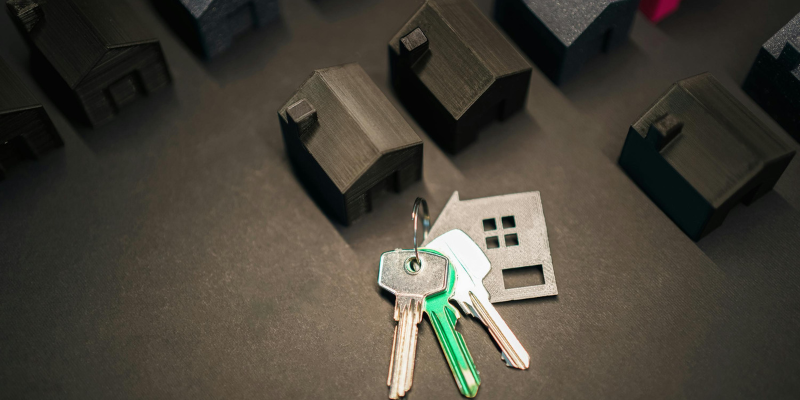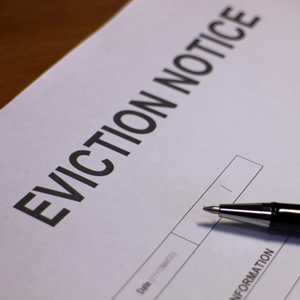
Understanding the Legal Implications of Selling a House with a Squatter
When selling a house in Cleveland that has a squatter, it is crucial to understand the legal implications involved. Squatters’ rights, also known as adverse possession laws, can complicate real estate transactions significantly.
In Ohio, squatters may gain legal rights to property after occupying it continuously for 21 years. This means that addressing the presence of a squatter promptly and legally is vital to avoid potential claims on your property.
Homeowners must navigate eviction processes carefully, adhering to local and state regulations to remove squatters legally before listing their home for sale. Consulting with a real estate attorney who understands Cleveland’s specific statutes regarding adverse possession and tenant rights can provide necessary guidance through this complex process. Cleveland House Buyers can help you understand and manage these challenges effectively.
Additionally, full disclosure of any occupancy issues to potential buyers is essential to maintain transparency and comply with Ohio’s real estate disclosure laws. Understanding these legal challenges helps ensure a smoother transaction when selling your Cleveland home with a squatter involved.
How Ohio Laws Affect the Sale of Properties with Squatters
When selling a home in Cleveland that has squatters, understanding Ohio’s laws is crucial for navigating this complex real estate transaction. Ohio property law requires homeowners to address the presence of squatters before proceeding with a sale, as these individuals might claim certain rights under adverse possession if they have occupied the property continuously and openly for a specific period.
The legal process to remove squatters involves serving an eviction notice and potentially going through court proceedings, which can delay the sale. Real estate transactions in Ohio involving squatter-occupied homes must ensure a clear title transfer, free from encumbrances related to unauthorized occupants.
Engaging with a knowledgeable real estate attorney who understands Ohio’s unique statutory requirements can help sellers manage risks associated with selling properties under these circumstances. Additionally, collaboration with local authorities and adhering to state eviction laws are essential steps in resolving squatter issues effectively, ensuring compliance and facilitating a smoother home sale process.
Strategies for Evicting Squatters From Your Cleveland Property
If you’re experiencing difficulties evicting squatters from your Cleveland property, rest assured that you’re not alone. To handle this problem properly, it is very important that you first find out the specific laws within the state of Ohio to help understand squatters, their rights, and the legal eviction concerns.

Make your case strong from the very beginning. A great way to start is to gather documentation that proves your property is being misused and claim the underlying reason for your case against the squatter. A real estate attorney who is experienced within the Cleveland zone would surely come to your rescue and make certain that you are compliant with the laws for the steps that are taken.
As required, put down the squatter’s written notification that his right of occupancy has been canceled to avoid unnecessary legal disputes. Squatters’ rights probably consider respecting the law, while escalating the matter to a legal suit would always allow you the upper hand. In certain circumstances, you are legally permitted to hire a pay-to-quit operator for prompt eviction.
Maintaining your composure while executing the often cumbersome pedestrian suit with the local court for an official decree (or the property) is important. From the Cleveland property owners’ perspective, it is always beneficial to print your image within the community as a buyer of Cleveland property.
Steps to Resolve Squatter Issues Before Listing Your House in Ohio
Selling a home in Cleveland or anywhere in Ohio can become complicated if your property has a squatter living in it. Squatters occupy a property without the owner’s permission, and resolving such issues requires careful legal and practical steps before you can successfully list your house for sale. Here’s a detailed guide to help you navigate this process smoothly.
- Understand Ohio’s Laws: Learn about squatters’ rights and legal eviction procedures to ensure you act correctly.
- Try Negotiation: Communicate with the squatter to encourage a voluntary departure, possibly offering incentives.
- Keep Records: Document all communications and eviction notices to support legal actions if needed.
- File Eviction if Needed: If negotiations fail, initiate a formal eviction through the court system with proper legal support.
- Secure Your Property: After eviction, change locks and improve security to prevent squatters from returning.
By following these steps, you can responsibly and legally resolve squatter issues before listing your Cleveland home in Ohio. If you need expert guidance or assistance with any part of this process, don’t hesitate to contact Cleveland House Buyers for personalized support.
Impact of Squatters on Property Sales and Valuation in Cleveland, OH
The impact of a squatter on a property can be very detrimental in Cleveland, OH, as it can lead to loss of valuation and a stalled sale. A house that is occupied by squatters is definitely going to turn off potential buyers, as it is perceived to be cheaper than the listed price.
Failing to maintain a home occupied by squatters will definitely lead to a depreciation in market value. The fierce competition in the real estate industry in Cleveland means that houses that are contested are unlikely to sell. This, of course, will lead to sellers incurring hefty losses and will lead to increased hold prices.
Buyers who are reluctant to purchase the property are more frequently licensed to realize the legal hassle that arises with regard to the noprocressing due to squatters. This in turn is likely to harm the reputation of the house, which will make it fall in value in comparison to other houses that do not have such problems.
Because of increased perceived risk, the property may not be perceived to be a good asset, and hence, a squatter-occupied house is more likely to have a lower property valuation. This impacts not just individual home sales but also adds to the ever-changing economic trends of Cleveland, a city that is always in the news.
Evaluating the Market Value of Properties with Squatters in Ohio
Assessing property value alongside squatters in Ohio requires both current market data and the complication of unlawful occupants. Equally posing a dilemma are Cleveland and other regions of Ohio. The fundamental approach to resolving this problem still relies upon valuing the location and the property in conjunction with the difficult legal processes that are likely to arise when dealing with unlawful occupants.

Homeowners and real estate investors need to pay special attention to such properties, as they need to understand occupants with squatters’ rights. Ohio property listings will have reduced value, as these properties are treated as complicated among real estate agents due to the cost of legal and renovation changes and concealed renovations.
Getting in touch with real estate agents who are familiar with local price changes and negotiation techniques for dealing with properties occupied by squatters is vital. Understanding these elements will enable the sellers to make suitable selling decisions and give the utmost investment return, with the complexity of selling a house overshadowed by the squatter problem.
Getting Your Cleveland Home Ready For Sale Even When Occupied By A Squatter
Selling your eligible Cleveland home with a squatter involves considering a few factors to ensure that the selling price reflects the maximum value. Start by lifting the curb appeal for the house by fixing all the identified issues or by making any improvements that add value for prospective buyers.
Addressing maintenance issues promptly is critical to the overall perception of the home and the value of the house, especially with the presence of a squatter. Approach local Cleveland real estate agents who are in touch with the local Cleveland real estate market for insights on pricing that reflects market value and the condition of the home.
Coordinating directly with the squatter can also help, especially in informing them about buyer and inspection appointments. This courtesy is necessary towards maintaining a favorable showing condition. Seek out legal counsel to outline the rights and the obligations that one may have in the situation to help manage risks and streamline the deal.
Meeting the above factors allows for easier selling of a Cleveland home under the unique condition of squatters.
Marketing Tactics for Selling Homes with Occupancy Issues in Cleveland
Selling a home with occupancy issues, such as the presence of a squatter, can be challenging, but implementing strategic marketing tactics can help attract potential buyers in Cleveland. Highlighting the property’s unique investment opportunities is key; emphasize its location within Cleveland’s vibrant market and showcase potential for value appreciation despite current occupancy challenges.
Utilize digital marketing platforms to reach investors who specialize in properties needing rehabilitation or legal resolution. High-quality photos and virtual tours that underscore the property’s structural attributes and neighborhood appeal can attract more interest.
Leveraging targeted advertising campaigns focused on investor communities will enhance visibility to those accustomed to dealing with similar situations, increasing the likelihood of a sale despite existing occupancy complications. For quick and reliable solutions, consider partnering with a trusted company, We Buy Houses, in Lakewood, Ohio, Cleveland, Ohio, and other neighboring cities, to streamline the sale process.
Finding Buyers for a Home Occupied by Squatters in Cleveland
Finding buyers and selling a home in Cleveland that is occupied by squatters is no easy task. If approached appropriately, it is possible to find buyers and sell. Focus on real estate investors, as they are often familiar with distressed properties and are more experienced in these situations.

Emphasizing how investors can earn money in the long run can help to foster interest in the property. Building trust is important; to maintain transparency, the portions that deal with the squatters’ situation should be free and clear in the matter.
Finding someone such as a real estate agent with experience dealing with such a complex matter can help. Their extensive network can be valuable. Their knowledge can help form helpful pricing strategies that consider all the extra difficulties involved. Offering to waive some costs, such as legal fees for squatters’ eviction, can help attract potential buyers who may be hesitant.
Exposure can aid the cause; using online sites that let users sell distressed property can directly connect them with cash buyers. This can help expedite and broaden the Cleveland real estate market to a portion of the audience that is actively looking for such investment deals.
Navigating Real Estate Transactions Involving Squatted Homes in Cleveland
Navigating real estate transactions involving squatted homes in Cleveland requires a strategic approach to address the unique challenges presented by the presence of squatters. First, it is crucial to understand Ohio’s property laws and tenant rights, which can significantly impact the eviction process.
Engaging with a local attorney experienced in real estate and eviction law is essential for navigating legal complexities efficiently. Additionally, clear communication with potential buyers about the situation is important; transparency builds trust and informs them of any legal proceedings or timelines involved in removing squatters.
Working with a cash home buyer in Cleveland, OH, and nearby cities familiar with such scenarios can help sellers market their Cleveland home effectively, highlighting its potential while addressing concerns related to occupancy issues. Utilizing targeted marketing strategies that emphasize the property’s value despite current occupancy challenges can attract investors interested in renovation or rental opportunities.
Employing negotiation skills to reach agreements with squatters, such as cash-for-keys arrangements, might expedite their voluntary departure, thereby simplifying the transaction process. Understanding local market conditions and pricing competitively are also key factors that influence successful sales outcomes when dealing with squatted properties in Cleveland’s dynamic real estate environment.
FAQs
Can I sell my house if a squatter is on my property?
Yes, you can sell your house even if a squatter is on the property, but you first need to address certain legal issues. It’s important to confirm whether the individual qualifies as a squatter under Ohio law and, if necessary, pursue eviction to regain full control of your home. Selling a house in Cleveland with a squatter present can be complex because it affects your legal rights and the sale process.
Before listing your home, you should take steps such as filing an eviction notice or working with local authorities if needed. Working closely with a real estate agent experienced in handling properties with squatters can provide valuable guidance, and consulting a real estate attorney familiar with Cleveland squatters’ rights will help ensure you take the correct legal steps.
Once the squatter issue is resolved, you can confidently list your home for sale. This typically makes your property more attractive to buyers and can increase its market value by removing any occupancy disputes.
What is the process of getting a squatter out of my property in Ohio?
To get a squatter out of your house in Ohio, there is a particular legal process that needs to be followed. First, verify that the person’s status is indeed that of a squatter, someone who is illegally occupying your property. After that, you must serve an eviction notice as per the regulations in Ohio, giving the squatter a specific duration to leave your property.
If the squatter does not leave, you will have to initiate an eviction case in the court of Cleveland. Remember to corroborate your case with evidence of ownership and keep a record of all the communications with the squatter. After the court issues an eviction order, it will be enforced with the help of local law enforcement.
If you follow these outlined steps, the squatter will be removed legally, and you will be able to sell the house without any issues.
Is it possible to forcibly remove a squatter?
It is illegal in Ohio to forcibly remove a squatter without following the legal steps. Homeowners cannot remove squatters without going to court due to squatters’ rights, which are usually connected to the law of adverse possession.
To begin with, to get the squatter out, you need to file a lawsuit known as “ejectment action” and submit proof of ownership, which shows the squatter has no legal standing to remain. Collaboration with local authorities and consulting legal professionals can aid you in observing the rules and regulations regarding eviction in Ohio to prevent legal issues.
By observing these guidelines, you can reclaim your property with ease, making it simpler to sell your house in Cleveland without any legal complications.
Looking to sell your Cleveland home quickly, even if it has a squatter? Whether you want to avoid costly repairs or prefer a hassle-free sale, Cleveland House Buyers is here to help. We provide fair cash offers, manage all the details, and make the process seamless. Ready to sell or have questions? Call us at (440) 577-6552 for a no-obligation offer. Get started today!
Helpful Cleveland Blog Articles
- Optimal Months For Selling Your Home In Cleveland, Ohio
- Sale Of A Cleveland, OH Home Amidst A Pending Lawsuit
- How To Successfully Sell Your House At Auction In Cleveland, OH
- Expert Tips For Downsizing Your Home In Cleveland, Ohio
- Selling a Fixer-Upper Home In Cleveland, Ohio’s Real Estate Market
- Successfully Selling Your Cleveland, OH, Home With A Squatter
- Navigating Inherited Real Estate With Siblings In Cleveland, OH
- Strategies To Stop Foreclosure On Your Home In Cleveland, OH
- Refinancing Your Cleveland, OH, Home After Divorce
- Inheriting A Mortgaged House In Cleveland, OH
- Closing After An Appraisal In Cleveland, OH
- A Guide To Selling Your House In Cleveland, OH
- Can Heir Property Be Sold in Cleveland, OH
- How Much Does Home Staging Cost in Cleveland, Ohio
- Can I Rent Out My House During Divorce in Cleveland, Ohio

| SQUATTER LAWS | SQUATTER’S RIGHTS | OPEN AND NOTORIOUS | SQUATTERS CLAIM | HOSTILE POSSESSION | CLEVELAND, OHIO |
| NOTICE TO VACATE | FORCIBLE DETAINER | TENANCY | LANDLORDS AND TENANTS | TRESPASSERS | REALTOR |
| LANDLORDS | LEGAL TITLE | PROPERTY OWNERSHIP | TAX | TAXES | LEASE |
| TENANCY | LAWYER | TRESPASSING | LEGAL STANDING | TRESPASSING | RENTAL PROPERTY |
| RENTERS | INVESTING | U.S. | AMERICA | SHERIFF | PROPERTY TAXES |
| CONSENT | COMPLAINT | REAL PROPERTY | REAL ESTATE INVESTMENTS | EXCLUSIVE POSSESSION | POLICE |
| INBOX | CRIMINAL | CRIMINAL OFFENSE | CRIMINAL ACT | BROWSER | |
| OHIO SUPREME COURT | MONEY | JURISDICTION | JUDGES | GOOD FAITH | FORCIBLE ENTRY |
| DEFINITION | DATA | BREAKING AND ENTERING | A SQUATTER MUST | THROUGH ADVERSE POSSESSION | RIGHTS IN OHIO |
| SQUATTERS” RIGHTS IN | OWNERSHIP OF THE | OF THE PROPERTY | SQUATTERS’ RIGHTS IN | OWNERSHIP OF THE PROPERTY | OWNERSHIP OF A PROPERTY |
